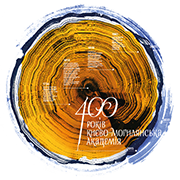News
SECULAR REGIMES AND RELIGIOUS DYNAMICS IN POST-SOVIET SOCIETIES: A COMPARATIVE ANALYSIS OF EAST GERMANY, POLAND, UKRAINE, AND RUSSIA
- Details
- Published on Wednesday, 26 June 2013 15:20
On June 18th, in NaUKMA Congregation Hall, José Casanova delivered an open lecture
titled SECULAR REGIMES AND RELIGIOUS DYNAMICS IN POST-SOVIET SOCIETIES: A COMPARATIVE ANALYSIS OF EAST GERMANY, POLAND, UKRAINE, AND RUSSIA. Professor Casanova presented an analysis of changes in attitude to religion in four post-Soviet societies after they got rid of aggressive Soviet-type secularism politics. He provided evidence that the four countries demonstrated quite different situation with religions; while the Eastern Germany kept being mostly non-religious even 20 years past the integration with the West, Poland wasn’t influenced by communist secularization and stayed one of the most religious state in the word, tightly connecting Catholicism with the idea of national revival. In post-Soviet Ukraine, quantity of religious people increased and, in the same time, “a truly free and competitive religious market in which all religions appear to thrive” developed here. In Russia, a number of believers also increased in the post-Soviet period, but the dominating tendency there is “orthodox re-confessionalization”: Russian Orthodoxy under the Moscow Patriarchate is highly privileged. Basing on this analysis, Professor Casanova disagreed with the thesis that the more secular a society is, the more it is modern. The diversity of religion dynamics demonstrated by four neighboring countries of the post-Soviet area made him to expect existence of “even more divergent modern religious patterns around the globe”.
José Casanova is one of the world's top scholars in the sociology of religion. He is a professor at the Department of Sociology at Georgetown University, and heads the Berkley Center's Program on Globalization, Religion and the Secular. He has published works in a broad range of subjects, including religion and globalization, migration and religious pluralism, transnational religions, and sociological theory. His best-known work, Public Religions in the Modern World (1994), has become a modern classic in the field and has been translated into five languages, including Arabic and Indonesian. In 2012, Casanova was awarded the Theology Prize from the Salzburger Hochschulwochen in recognition of life-long achievement in the field of theology.

